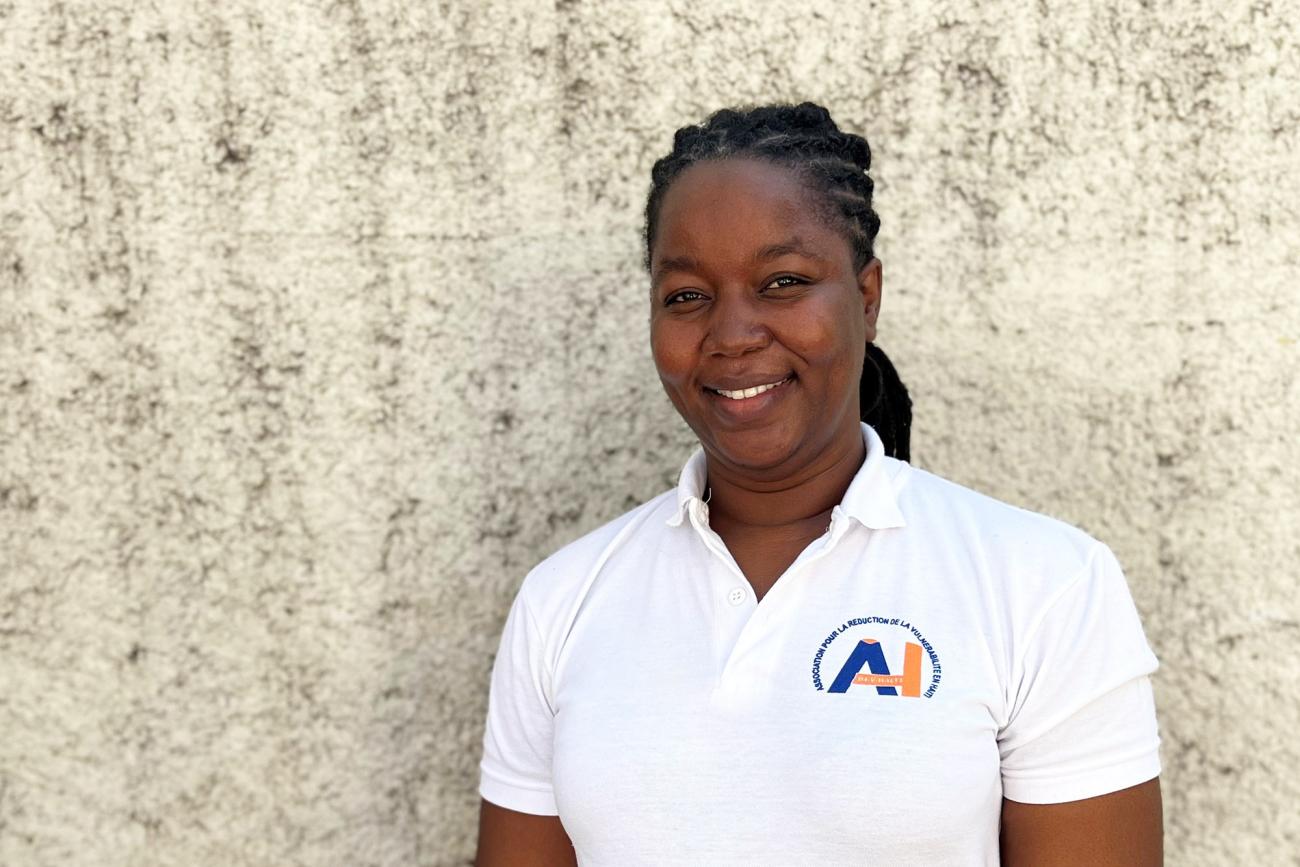This story is from the "Faces of Recovery" series about how Haitians, the UN and partners responded to the devastation caused by the August 2021 earthquake.
Members of the transgender community in Haiti are often blamed for natural disasters and may face difficulties accessing support, according to Priska Claude Cadet, coordinator of the Association for the Reduction of Vulnerability in Haiti (AREV-Haiti), a UNDP-supported organization that advocates for the LGBT community.
"The homes of some transgender people were destroyed by the earthquake and some were forced to live on the streets and as a result faced being victimized.
There is one case in particular that caught our attention. A woman, who has a visual impairment, lost her home and built a temporary shack on the side of the road. Up until today, she does not feel safe where she lives because she is threatened by people who taunt her, calling her a "masisi" (homosexual, in Creole), even though she does not identify as homosexual. They threatened her by saying that they could come at any moment and burn her alive because they have to exterminate the "masisi.”
Transgender people suffer enormous hardship because they are blamed for natural disasters, like earthquakes that have occurred in the country. Their accusers call them an abomination and say that they attract evil. What makes their situation even more difficult is that there are no official bodies they can turn to in order to seek help or file a complaint if they are the victims of violence.
After the earthquake, we supported transgender people with humanitarian aid and money to rebuild their homes.”






